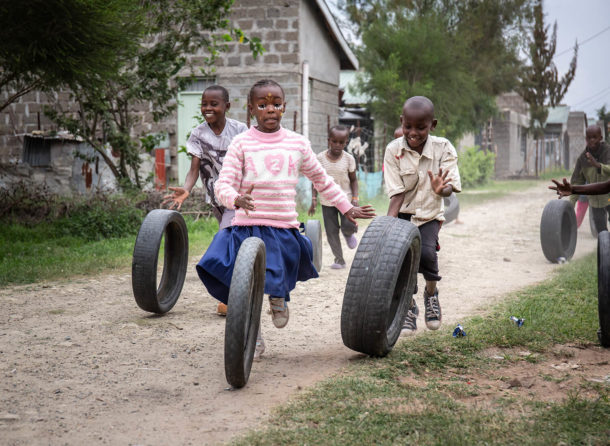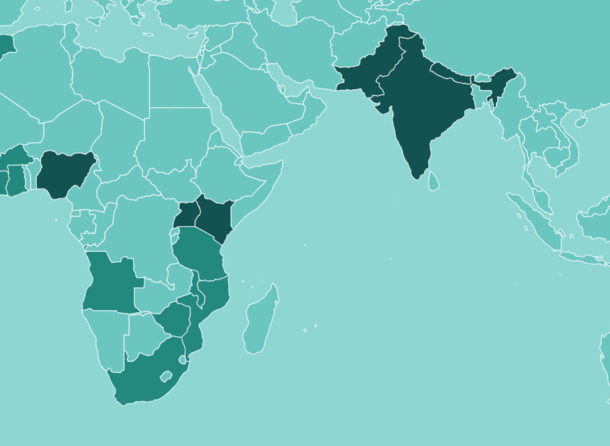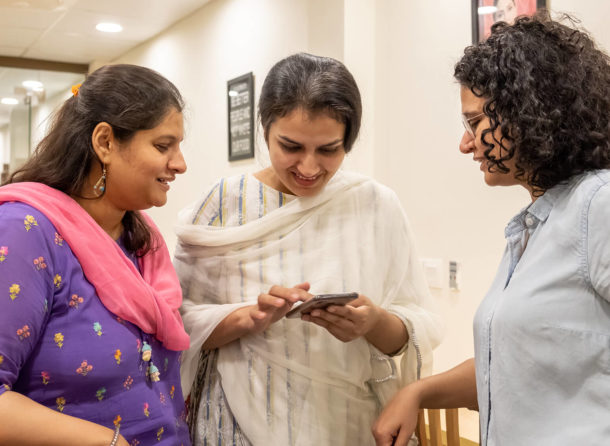
Affordable housing essential to tackle climate crisis
The projections are sobering. It is estimated that more than 6.7 billion people will live in urban areas by 2050, up on the current urban population of 4.2 billion. This will cause a host of issues – both in terms of carbon emissions, public health and the environment – particularly if the housing built is substandard.
One organisation aiming to improve the housing stock of the Developing World is Reall, which wants to improve the lives of 100 million people across Africa and Asia by 2030, by building climate-smart, affordable homes.
“We don’t build houses that cost more than $10,000 in order to meet the massive demand for affordable housing in developing countries”, says Reall’s Head of Global Policy and Influence, Donovan Storey.
“But in addressing the urgent need for climate action, can we now also use green building materials and make our housing as climate-smart as possible?”
With the urban population set to grow hugely in the coming decades, and the large portion of that set to live in sub-standard housing, it’s vital – both from a public health and climate change perspective – that the quality of the housing stock improves.
“We see that gap between the global agenda on housing and recognising that some three billion people will live in slums or poor quality housing by 2050, and acknowledging the climate agenda and the race to reduce emissions,” Storey says. “This gap is not going to be solved by government housing schemes; it’s going to be solved by crowding in a lot of entrepreneurs, new green finance, innovation in terms of building materials, and also a mainstreaming of environmental and climate agendas into affordable housing. It also needs to recognise NDCs and climate ambitions of the significance of the built environment through the prism of meeting housing needs.”
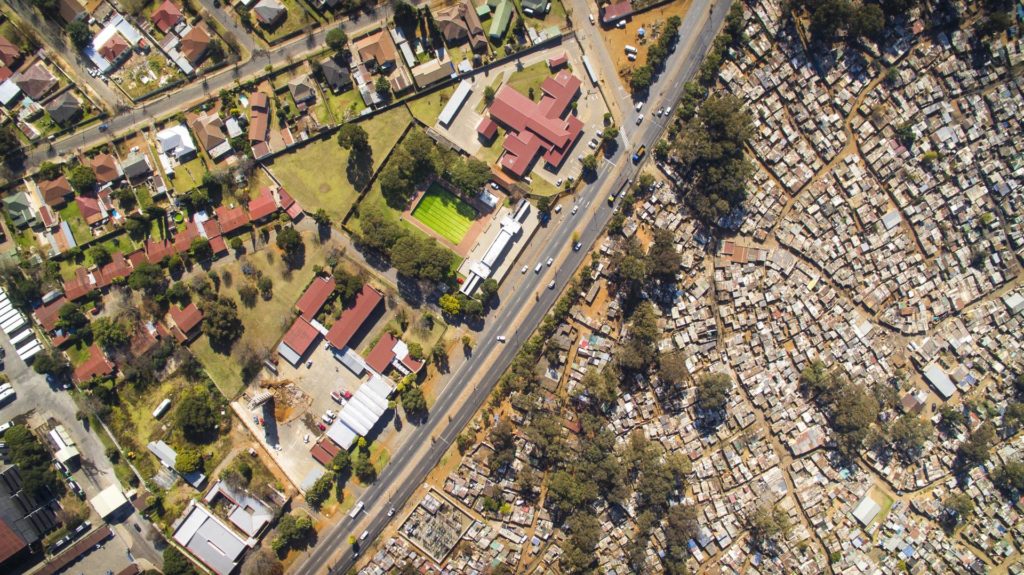
Reall currently operates in a number of countries around the world, but has five “priority countries” it focuses on: Nigeria, Kenya, Uganda, Pakistan and India. Its goal is to ensure that all future affordable housing solutions are certified through the International Finance Corporation’s green building tool, EDGE, demonstrating the opportunities in meeting both housing needs and a net-zero future.
The organisation “supports commercial enterprises and local NGOs building houses” in those countries, according to Storey. This happens through grants and loans, the funding Reall gets from Sida, the Swedish International Development Cooperation Agency. “That enables our partners to build a proof of concept of affordable, climate-smart housing that can be scaled up”, Storey says.
While each country Reall operates in has its own challenges, they also share some common characteristics.
“We see a massive housing gap in every country, and the inability of the purely private sector or purely public sector to meet those needs”, Storey says.
Access to finance is another issue prevalent across the Developing World. “In Kenya and Nigeria – countries with a combined population of over 250 million – the number of mortgages combined is less than 50,000”, Storey says. That gap in financing means it is also more difficult for entrepreneurs to access capital to start or grow their business, which means it is more difficult for innovative housing solutions to make it to market.
There can also be a conservatism around the construction industry in general, which hampers innovation. “We find there are traditional attitudes to building codes and to the use of non-standard building materials, which can take a lot of effort to overcome”, Storey says. “There has been successes in places like Rwanda in terms of green building guidelines and materials, but broadly there’s a policy environment which is very conservative to building codes and materials.”
“The countries our partners work in are some of the most vulnerable to the effects of climate change. These countries also need to deliver against resilience and adaptation commitments and delivering affordable housing that strengthens household resilience to climate risks is one of the key ways this can be achieved.”
Another challenge is the misconception that climate-smart housing and affordable housing are mutually exclusive. “It’s not a trade-off”, Storey says. “There’s sometimes the [wrong] belief that green building materials and design is a lot more expensive and that it’s a boutique option for a small market”, he adds. “It’s vital we mainstream climate-smart housing at an affordable scale if we are going to achieve the Paris Agreement goals.”
Despite the challenges, Storey is optimistic. “We are seeing fantastic innovations around alternative concrete that doesn’t have concrete’s high carbon footprint. There’s also great innovations around compressed earth blocks, yet to scale, they all need to be invested in.”
“There has essentially been a failed approach to housing the urban poor that has lasted decades”, Storey says. “But I think there is a greater impetus to do things differently and to invest in innovations and everyone understands that we are all co-dependent and it’s vital we find solutions.”
Four To Watch
Four innovative construction companies that Reall works with.
- BuildX Studio – Africa’s first B Corp Certified Design-Build company, BuildX Studio creates innovative houses that ensures minimum waste and emissions. The company has built everything from schools and hospitals to low-cost housing across Sub-Saharan Africa.
- Smart Havens Africa – A social enterprise pioneering in green building materials. This Ugandan company drives down CO2 emissions through its use of interlocking compressed earth bricks. It also provides financial literacy and property management training to the families who buy its houses.
- Modulus Tech – An innovator in low-carbon construction materials, this start-up provides very low-cost “flat pack” homes that can be constructed in just days – saving 90 per cent of carbon dioxide emissions per house. The houses comprise of a steel frame with walls made of recyclable materials such as fibre cement composites and wood-plastic composites, while glass wool insulation ensures the houses are energy efficient.
- 14Trees – 14Trees is a LafargeHolcim and CDC Group joint venture dedicated to accelerating the provision of affordable housing in Africa. Many of its projects use Durabric, an affordable alternative to traditional burnt clay bricks, which means no firewood is needed to produce them.
Read more
Read more stories
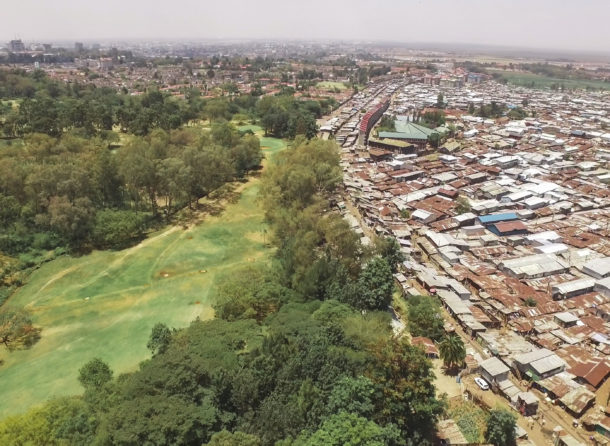
How Affordable Homes could help solve the global climate crisis
The United Nations climate summit, COP25, starts today in the Spanish city of Madrid where climate leaders will push to scale up action and investments into rapidly reducing global greenhouse gas emissions and support broader sustainable development agendas, specifically addressing …
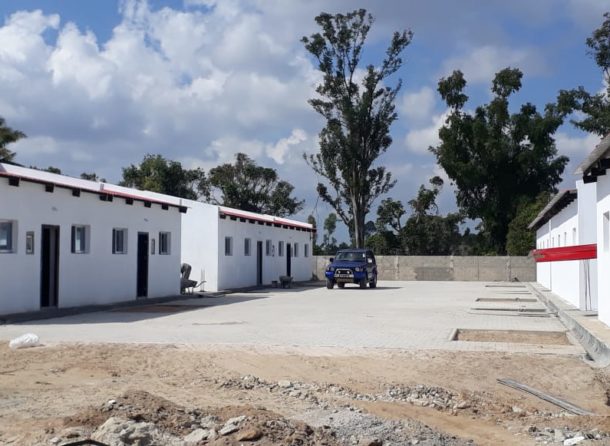
Celebrating affordable housing in Beira
The ribbon-cutting ceremony was attended by Reall’s Director of Investment and Operations Patrick Domingos-Tembwa, Mayor of Beira Daviz Simango and Casa Real Director Marie Odile. The celebration was particularly poignant as these homes managed to withstand the destruction of Cyclone…
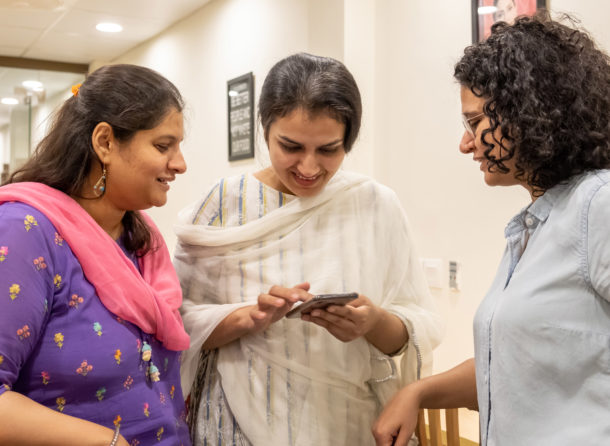
New Partnership: Syntellect
Reall are delighted to be partnering with India-based technology firm, Syntellect. Syntellect are committed to giving unbanked people the opportunity to access mortgage finance across Africa and Asia. Syntellenct has created RightProfile, a customer profiling platform designed to help lenders …
